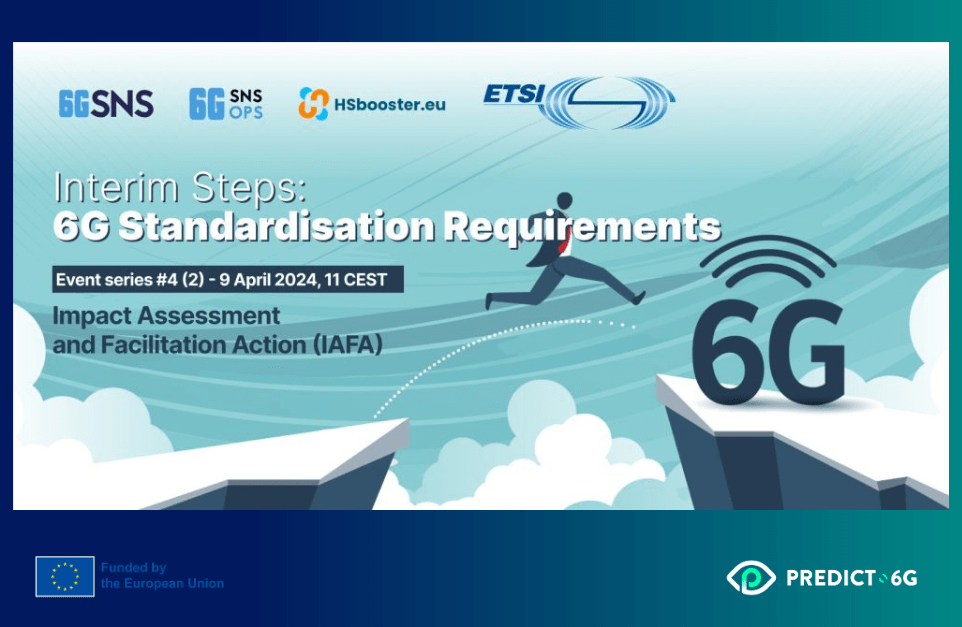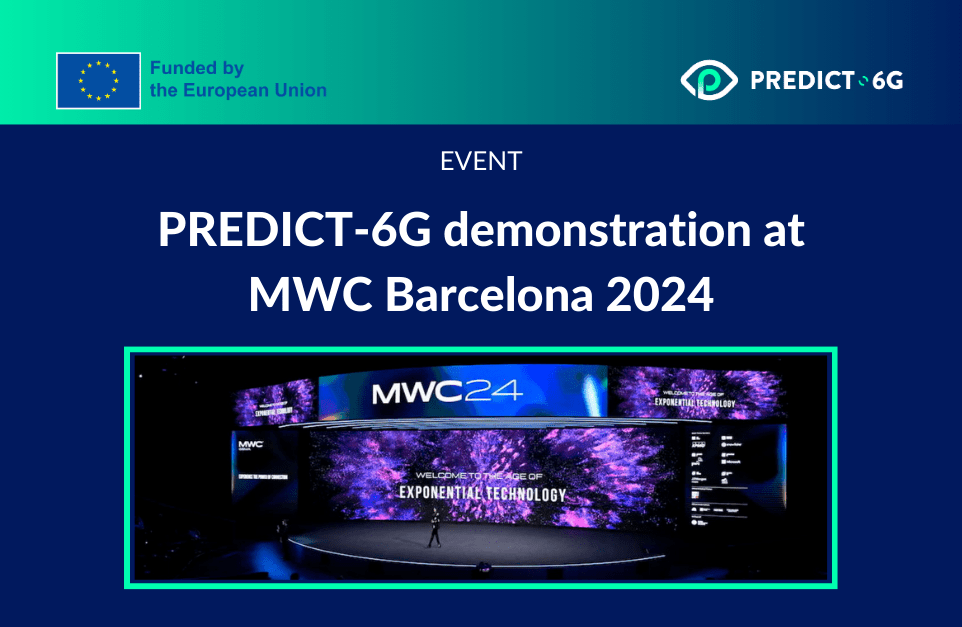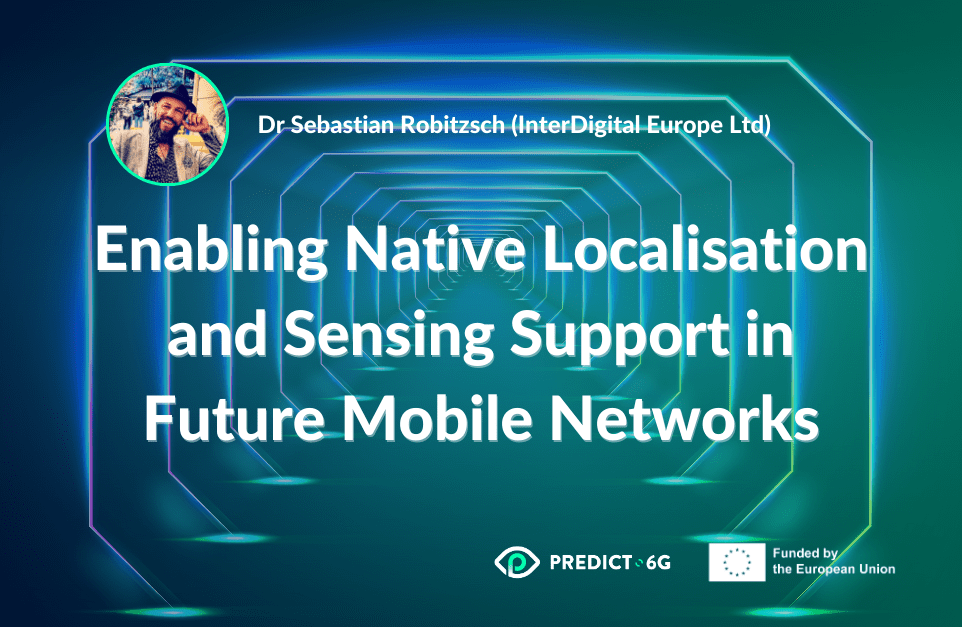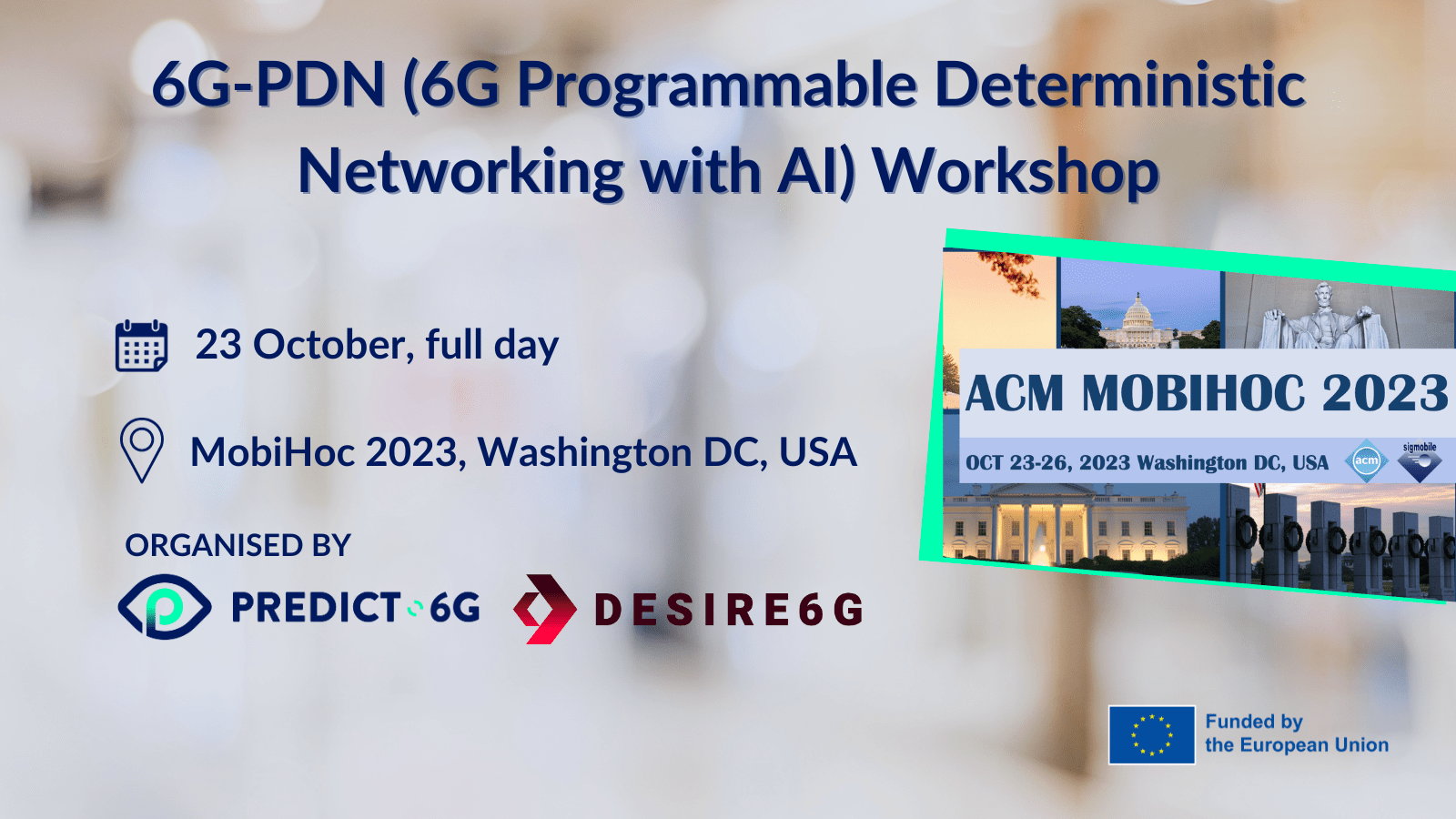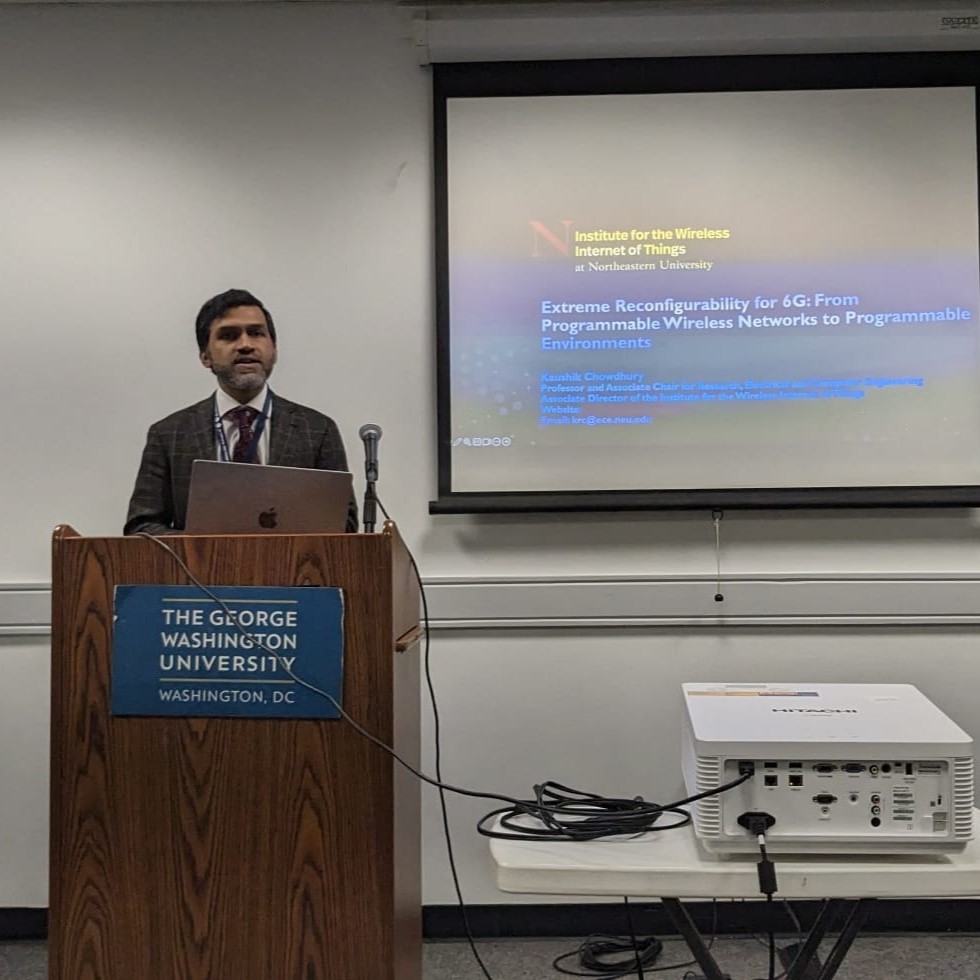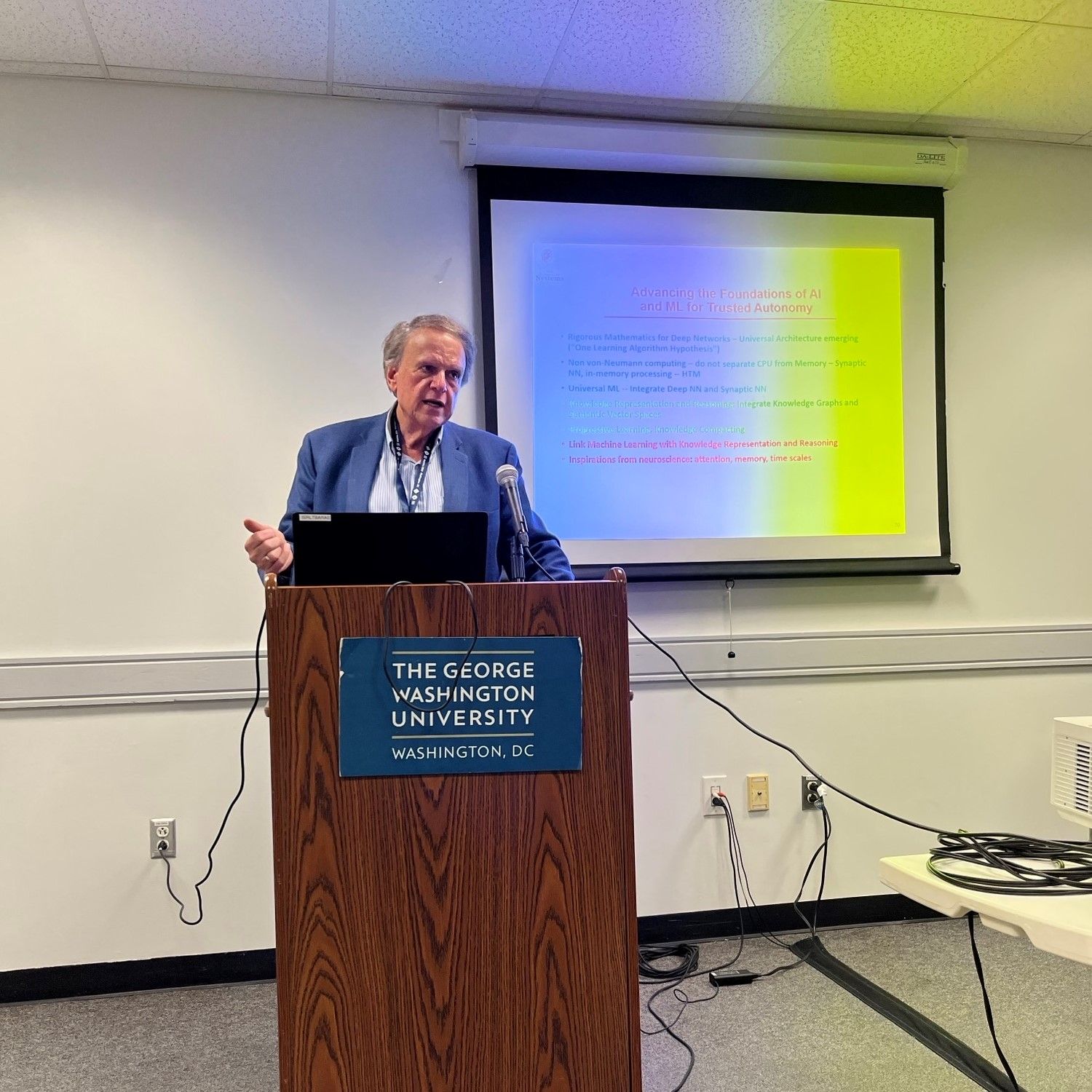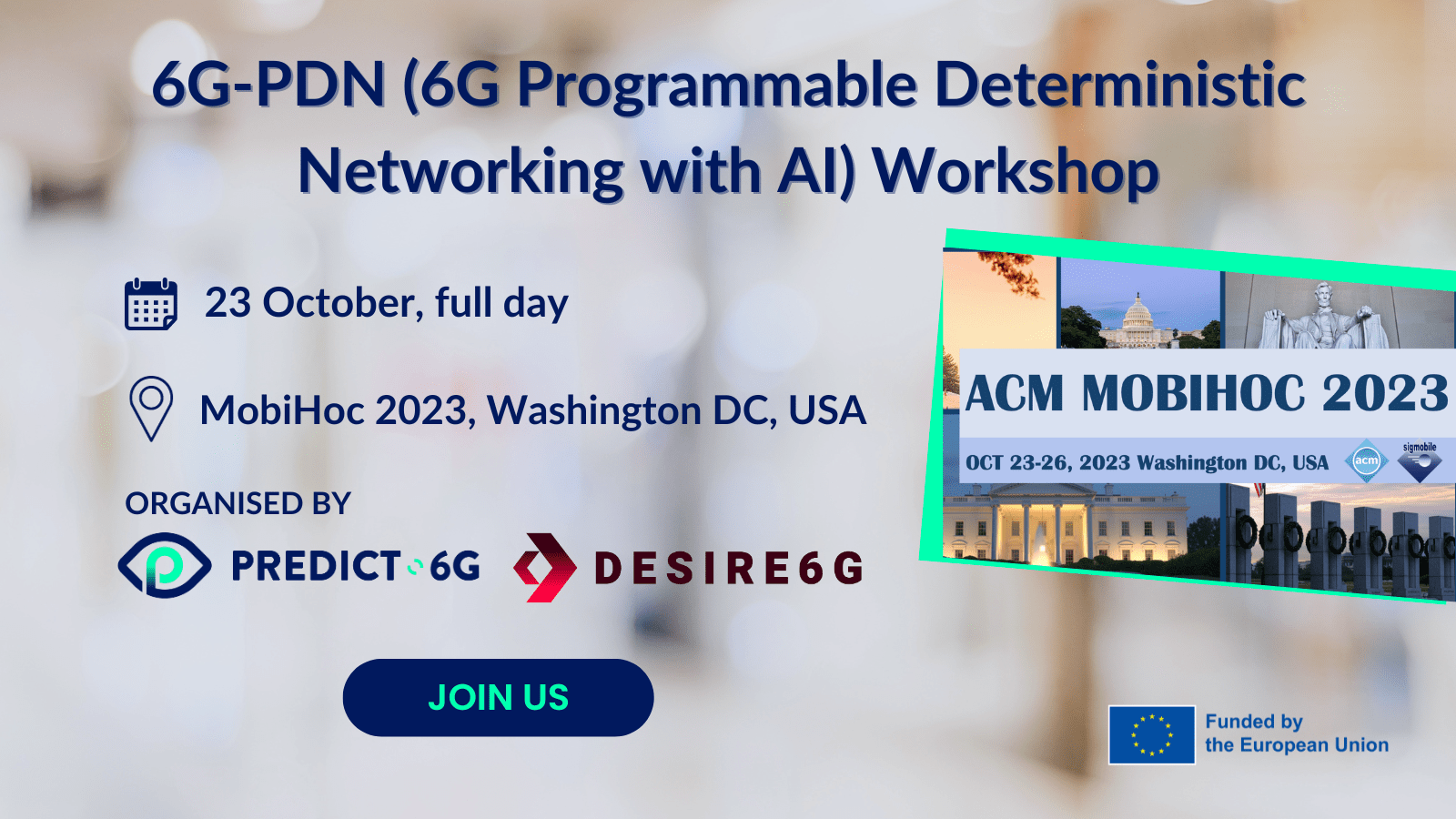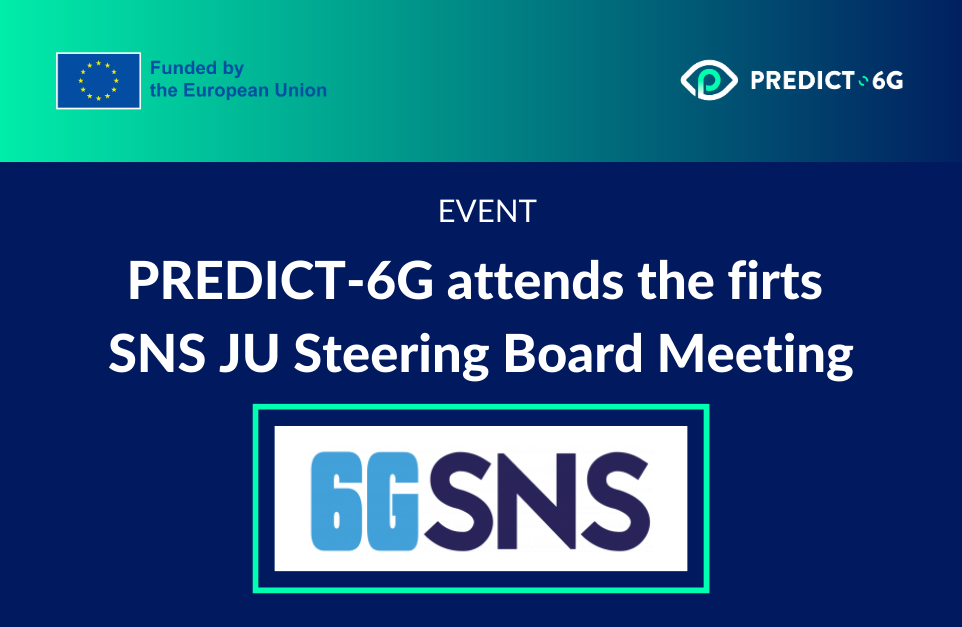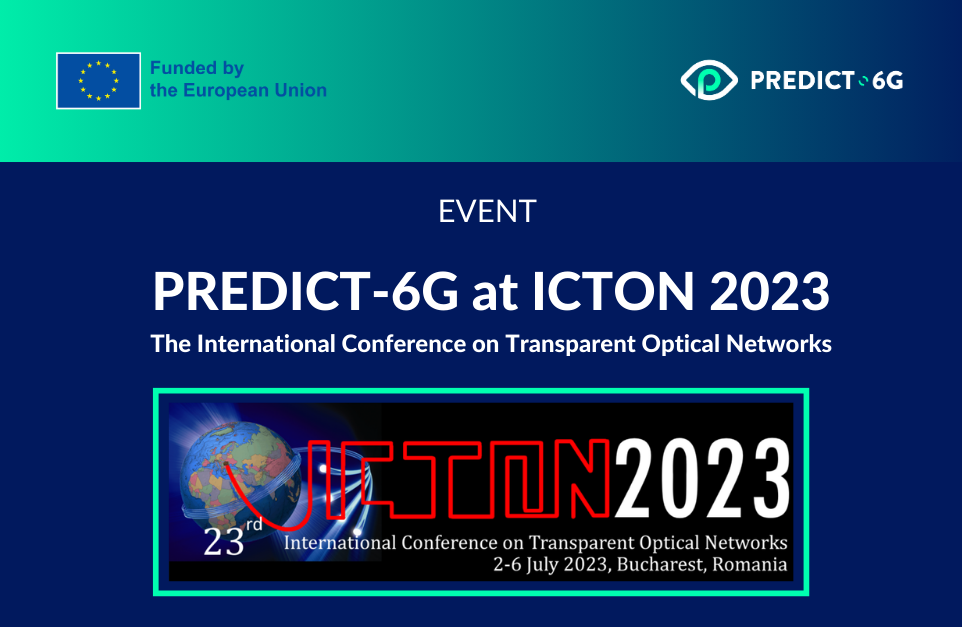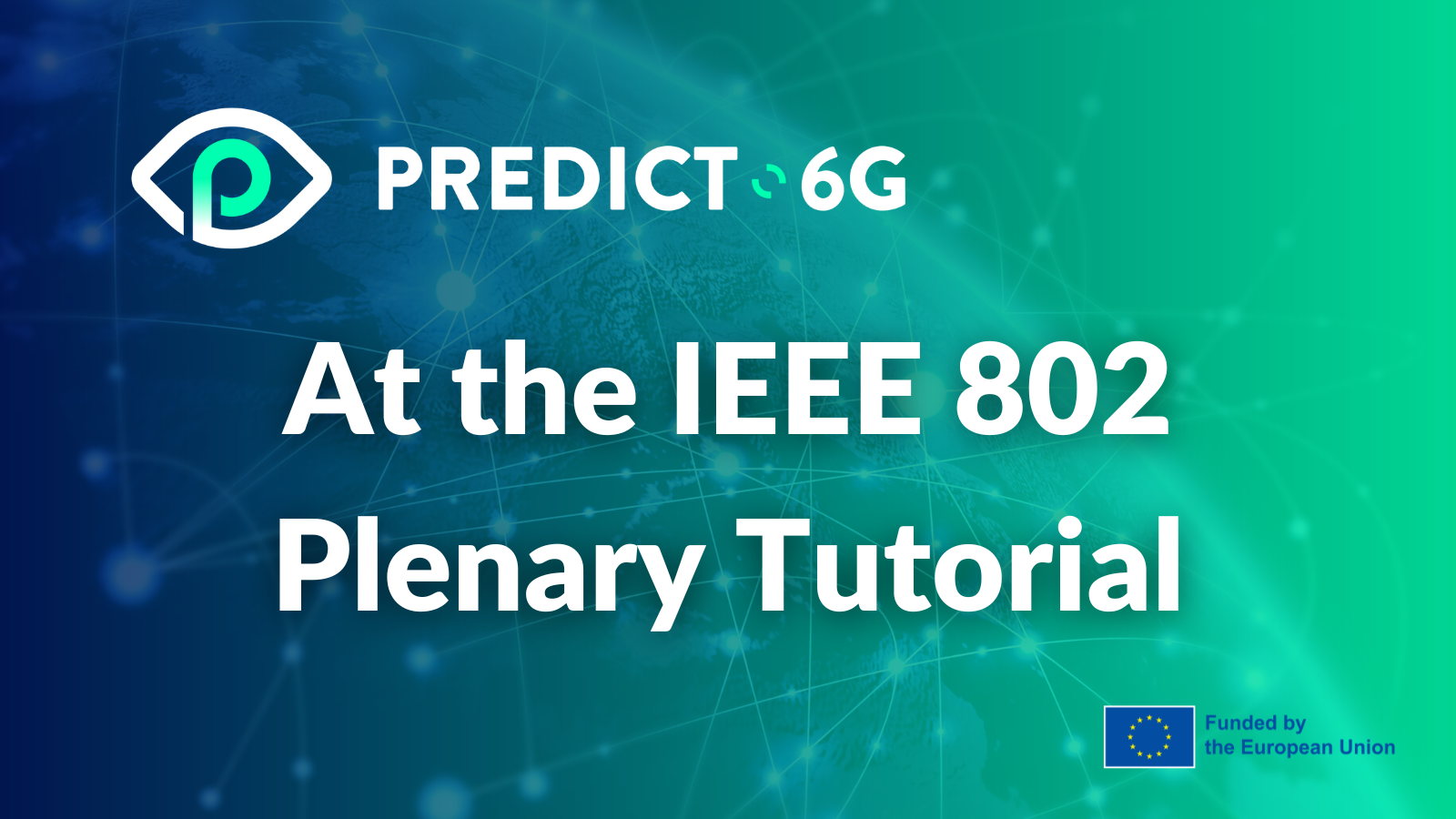PREDICT-6G on Standards Requirements
PREDICT-6G is one of the projects invited to participate in the IAFA#4.2 Interim Steps: 6G Standardisation Requirements that will take place on the 9 of April 2024. This is the second of a three-event series on pre-standardisation organised by SNS OPS, as part of its Impact Assessment and Facilitation Actions (IAFAs) initiative, in collaboration with ETSI and HSBooster.eu.
Carlos J. Bernardos (UC3M) will speak about the efforts of PREDICT-6G in standardisation, including how the project is internally organised to address standards-related issues and how it manages the cooperation with various SDOs. Carlos will also provide insights on PREDICT-6G achievements in the field thus far.
This second event delves into emerging 6G standardisation requirements and work items in the attempt to harmonise efforts between R&D projects and SDOs, with specific input on European SDOs. Emphasising the importance of collaborative efforts in research and development for 6G, this workshop aims to foster discussions on how ongoing research projects can contribute to the creation of standards.
You can register for the event here.
If you want to stay updated about PREDICT-6G, subscribe to our newsletter and follow us on Twitter and LinkedIn!
PREDICT-6G will be at the EuCNC 2024
The 2024 EuCNC & 6G Summit will take place from the 3rd to the 6th of June in Antwerp, Belgium. Combining two successful telecoms conferences: ECNC (European Conference on Networks and Communications), supported by the European Commission, and the 6G Summit, originating from Finland's 6G Flagship programme, the event is now one of the largest in the sector.
It brings together cutting-edge research and world-renowned industries and companies, globally attracting over 900 delegates from more than 40 countries around the world in recent years. PREDICT-6G returns for the second consecutive year, to repeat the successes of the 2023 edition and establish itself as one of the leading projects in 6G.
PREDICT-6G will be present in three workshops, both in the organisational part and in the presentations slots:
“Architectural Considerations Enabling the IMT 2030 Framework by European 6G R&D Activities”. This workshop, proposed by PREDICT-6G consortium members InterDigital Europe Ltd, Nokia and Universidad Carlos III de Madrid, together with NEC Laboratories Europe, Eurescom and Aristotle University of Thessaloniki, will present the 6G SNS projects architectural design innovations, challenges and opportunities, combined with early findings and potential impacts towards 6G, around six usage scenarios and four overarching aspects.
The workshop is formed around the six IMT 2030 usage scenarios set out by the ITU-R, complemented by the four overarching aspects on sustainability, connecting the unconnected, ubiquitous intelligence and security/resilience. Each IMT usage scenario will be addressed by a consolidated presentation from multiple relevant projects from the 6G Architecture Working Group, including PREDICT-6G.
“Trials, Pilots and Demos for Selected Verticals: the Experimental Way Forward towards 6G”. This workshop, co-organised by the 6G-SANDBOX, 6G-XR, FIDAL, SNS-ICE and PREDICT-6G projects, will share the views, achievements, and lessons learnt from the realisation of early trials, pilots and demonstrations in the respective projects. It will also provide information and guidance on how third parties can benefit from the experimental infrastructure being developed by these projects to carry out additional experimental work.
Collectively, the SNS projects taking part in this workshop have in-depth knowledge and practical insights in key verticals for the EU economy such as industrial manufacturing, media and entertainment, gaming, public protection and disaster relief, or smart cities. This will guarantee a balanced coverage in the technical sessions, as well as the exchange of valuable and diverse points of view in the final panel discussion.
"The 6G series workshop by Hexa-X-II". This workshop, organised by the european 6G flagship research project Hexa-X-II, will address the conference tracks ‘PHY—Physical Layer and Fundamentals’, ‘WOS – Wireless, Optical and Satellite Networks’, ‘NET – Network Softwarization’ ‘AIU Applications, IoT, Use Cases’ and ‘6G Visions and Sustainability’, by providing an overview on the 6G research from the major European players. This will be accomplished by inviting other SNS JU Stream B 6G technical enabler projects to present, such as PREDICT-6G.
The workshop is divided into 4 sessions of 90 minutes, and it will be in session 3 - 6G Architecture (90 min) where the coordinator of PREDICT-6G, Antonio de la Oliva (Universidad Carlos III de Madrid) will participate. He will give a 12-minute presentation entitled ‘The importance of predictability in 6G networks’.
Stay tuned for more detailed information!
If you want to stay updated about PREDICT-6G, subscribe to our newsletter and follow us on Twitter and LinkedIn!
PREDICT-6G demonstration at MWC Barcelona 2024
MWC Barcelona, the largest and most influential event in the connectivity sector, was held on the 26-29 February 2024. It brought together more than 28,000 organisations in a total of over 2,700 exhibitors, one of which was PREDICT-6G consortium member InterDigital. InterDigital had a strong presence at MWC, with a stand that included, among other things, several demos showing how innovation powers connected experiences at work, at play and at rest.
At Work: Sensing-Enabled 6G Mobile Networks, was the space where InterDigital showcased sensing-enabled 6G mobile networks through a connected factory environment. Using InterDigital's sensing and communication technology to retrieve and send real-time information from network sensors and devices, the InterDigital team showed how their contributions to this fundamental 6G function can unlock new potential for consumers and businesses. One of these contributions is the PREDICT-6G demonstration called "Novel User Plane concepts for deterministic communications in an ISAC setting".
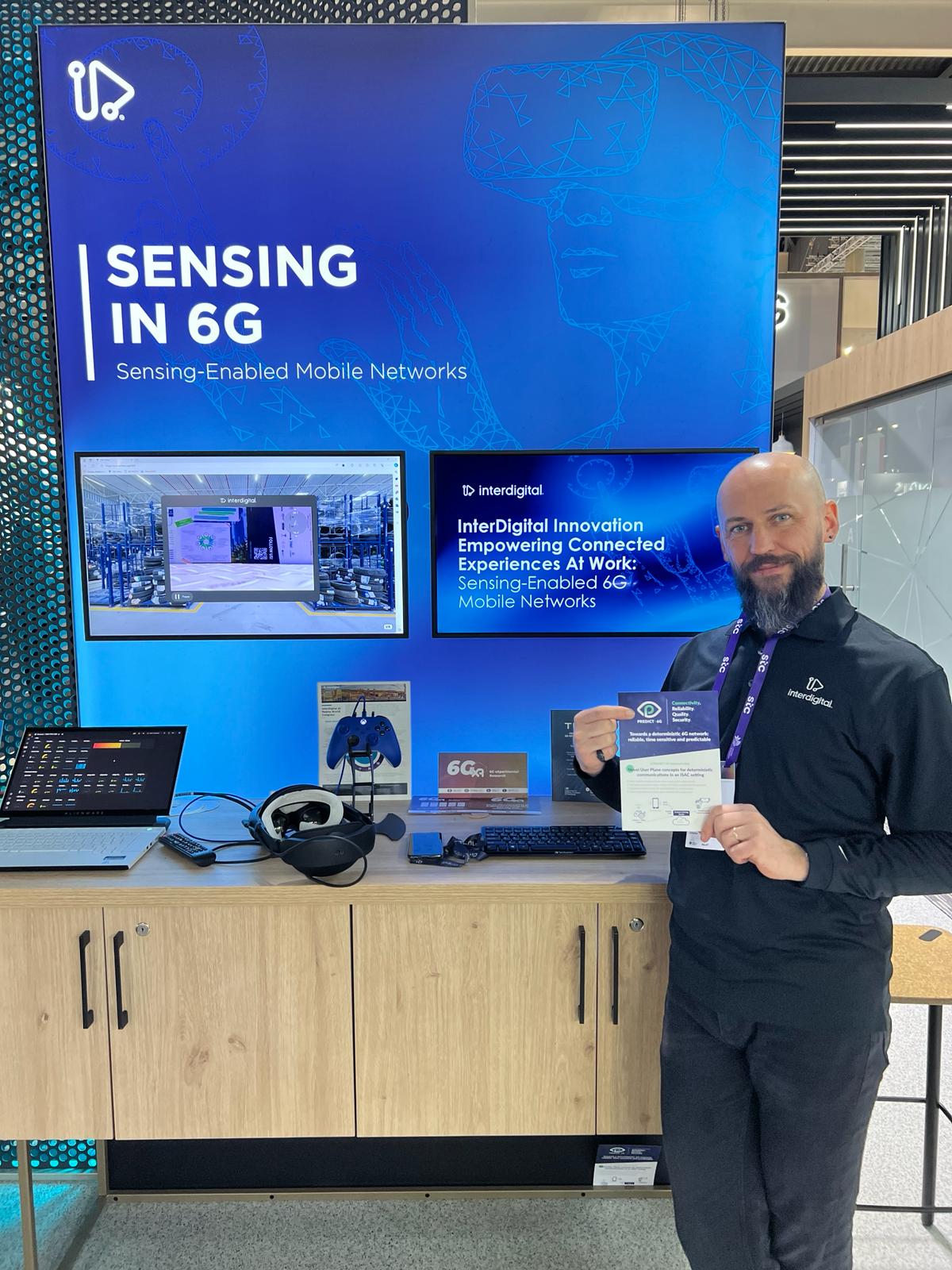
Dr. Sebastian Robitzsch from InterDigital, responsible for the standardisation of PREDICT-6G, showed our demo to the visitors of the MWC. The demonstration featured a mobile network for seamless wireless connectivity in a warehouse. An autonomous vehicle, equipped with distance and camera sensors, was connected to this network. Additionally, radar sensors on mobile devices enhanced security by detecting objects. Users controlled the vehicle remotely with a wireless glove, and sensor data was processed in the mobile network before being integrated into an application, enabling precise navigation in the warehouse.
If you want to stay updated about PREDICT-6G, subscribe to our newsletter and follow us on Twitter and LinkedIn!
Enabling Native Localisation and Sensing Support in Future Mobile Networks
Dr Sebastian Robitzsch, member of the Consortium on behalf of InterDigital Europe Ltd, was invited to speak at the industry track on sensors and devices at IEEE World Forum on the Internet of Things (WFIOT).
With the new ETSI Industry Specification Group for Integrated Sensing and Communications (ISG ISAC) officially launched, the talk first motivated the content covered with "sensing" as one of the core IMT research areas for 2030 and beyond. It then dives into 3GPP's work on a feasibility study to natively support sensing use cases and to offer sensing results to verticals, such as IoT applications. The 3GPP use cases considered for standardisation in Rel.19 and beyond were mapped to why sensing relies on deterministic communications and how to achieve that using IEEE (TSN) and/or 3GPP data plane technologies in the advent of 6G.
The work that underpins the presentation is InterDigital's contribution to PREDICT-6G on an IP header-based solution on packet grouping (aka Data Unit Groups) to perform deterministic action in intermediate switches and routers, e.g. 5G User Plane nodes such as UE, gNB and UPF or TSN switches in- and outside a 3GPP domain.
If you want to stay updated about PREDICT-6Gt, subscribe to our newsletter and follow us on Twitter and LinkedIn!
PREDICT-6G and DESIRE6G co-organise the “6G-PDN Workshop” at MobiHoc 2023
We are pleased to announce that PREDICT-6G and DESIRE6G successfully co-organised the "6G Programmable Deterministic Networking with AI" workshop (6G-PDN)” on the 23 of October 2023, at the prestigious 24th International Symposium on Theory, Algorithmic Foundations, and Protocol Design for Mobile Networks and Mobile Computing (MobiHoc 2023) held in Washington DC, United States.
The '6G-PDN Workshop' served as a platform for leading researchers, industry experts, and academics to come together and discuss the roadmap and challenges of the technological areas within deterministic communications and deep network programmability in the context of 6G technology to support future end-to- end time-critical applications.
Hosted by the project coordinators of PREDICT-6G and DESIRE6G, Dr. Antonio de la Oliva and Dr. Chrysa Papagianni, respectively, the workshop spanned an entire day. It featured two keynote presentations delivered by Professor John Baras from the University of Maryland and Professor Kaushik Chowdhury from Northeastern University, along with three sessions dedicated to discussing academic papers around the following key topics:
- Deterministic Communications:
Exploring cutting-edge research on deterministic communication technologies that can provide ultra-reliable, low-latency communication links for critical applications such as autonomous vehicles, industrial automation, healthcare systems, and more. This is particularly relevant for PREDICT-6G, which focuses on creating a secure, modular, interoperable, and extensible deterministic network and management framework that automates the definition, provisioning, monitoring, fulfillment, and life-cycle management of end-to-end deterministic services over multiple network domains.
- Deep Network Programmability:
Delving into the advancements in deep network programmability, the ability to program the network fabric both vertically (control and data plane) and horizontally (end to end), that is expected to characterise the new generation of mobile networks, towards supporting extreme performance requirements and service-specific operations. DESIRE6G is in fact introducing deep programmability to the mobile network with the adoption of an end-to-end programmable data plane that supports multi-tenancy, using an abstraction layer to interact with the heterogeneous devices e.g., ASICs, CPUs, GPUS, DPUs etc.
- Transforming networking with AI
Native integration of AI is considered an integral feature of envisioned 6G systems both as a means for designing flexible, less complex, reconfigurable networks, as well as an intrinsic in-network intelligence feature. This is relevant to DESIRE6G that aspires to natively integrate AI in the 6G system architecture to support adaptive decision-making at different time scales with expected impact on energy and performance efficiency gains.
The workshop's key findings include the definition of digital twins, AI and sensing as key areas where deterministic and programmable networks can work together to achieve extreme KPIs.
The standout aspect of the workshop was without any doubt the excellent quality of our keynotes: “Extreme Reconfigurability for 6G: From Programmable Wireless Networks to Programmable Environments” by Professor Kaushik Chowdhury and “Next Generation Hybrid Network (core, 5G/6G, non-terrestrial) Automation: Integrated Model-Based and Data-Driven Systems Engineering” by Professor Baras, which attracted top researchers attending the MobiHoc conference.
The papers that were selected to be part of the workshop are listed below:
- A hierarchical AI-based control plane solution for multi-technology deterministic networks. Authors: P. Giardina, P. Szilágyi, C. Chiasserini, J. Carcel, L. Velasco, S. Spadaro, F. Agraz, S. Robitzsch, R. Rosales, V. Frascolla, R. Doostnejad, A. Calvillo, G. Bernini.
- Using RAW as Control Plane for Wireless Deterministic Networks: Challenges Ahead. Authors: C. Bernardos, A. Mourad, M. Groshev, L. Contreras, M. Roselló, O. Bularca, V. Frascolla, P. Szilagyi, S. Robitzsch.
- Aligning rTWT with 802.1Qbv: a Network Calculus Approach. Authors: C. Barroso-Fernández, J. Martín-Pérez, C. Ayimba, A. de la Oliva.
- Enabling Programmable Deterministic Communications in 6G. Authors: M. Thi, S. Said, A. Roberty, F. Chbib, R. Khatoun, L. Linguaglossa.
- In-Network Quality Control of IP Camera Streams. Authors: C. Györgyi, K. Kecskeméti, P. Vörös, S. Laki, G. Szabó.
- In-Network Security Applications with P4RROT. Authors: K. Kecskeméti, C. Györgyi, P. Vörös, S. Laki.
- Towards extreme network KPIs with programmability in 6G. Authors: G. Pongrácz, A. Mihály, I. Gódor, S. Laki, A. Nanos, C. Papagianni.
- Failure Prediction in Software Defined Flying Ad-hoc Network. Authors: D. Uomo, A. Sgambelluri, P. Castoldi, E. De Paoli, F. Paolucci, F. Cugini.
We extend our gratitude to all participants and to the esteemed keynotes, Professor John Baras and Professor Kaushik Chowdhury, for their invaluable contributions and insights shared during the event. Their expertise and perspectives significantly enriched our discussions, and we anticipate that they will continue to ignite further stimulating conversations in the future.
Stay tuned for future updates and events as we continue to strive towards shaping the future of 6G.
|
|
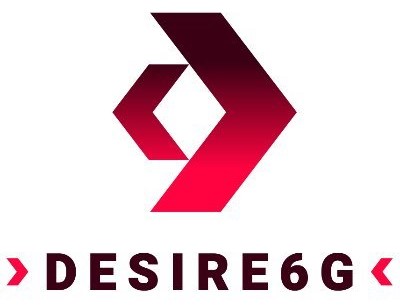
|
Join PREDICT-6G at the MobiHoc2023
The 24th International Symposium on Theory, Algorithmic Foundations, and Protocol Design for Mobile Networks and Mobile Computing (MobiHoc 2023) will be held on the 23-26 of October 2023 in Washington DC, USA.
In this scope, DESIRE6G and PREDICT-6G will co-organise the “6G Programmable Deterministic Networking with AI” (6G-PDN) workshop, which will take place on the 23 of October. The aim is to discuss the roadmap and challenges in the technological areas of deterministic communications and deep network programmability in 6G to support future end-to- end time-critical applications, bringing together academic and industry researchers.
The programme features Kaushik Chowdhury, Professor and Vice Chair of Research at Northeastern University College of Engineering, and John Baras, Professor and Lockheed Martin Chair in Systems Engineering at the University of Maryland, as keynote speakers. Following an open call for papers, the selected authors will discuss in-depth various aspects of deterministic networks. These are organised in three sessions:
Session 1
- A hierarchical AI-based control plane solution for multi-technology deterministic networks Authors: P. Giardina, P. Szilágyi, C. Chiasserini, J. Carcel, L. Velasco, S. Spadaro, F. Agraz, S. Robitzsch, R. Rosales, V. Frascolla, R. Doostnejad, A. Calvillo, G. Bernini
- Aligning rTWT with 802.1Qbv: a Network Calculus Approach Authors: C. Barroso-Fernández, J. Martín-Pérez, C. Ayimba, A. de la Oliva
- Enabling Programmable Deterministic Communications in 6G Authors: M. Thi, S. Said, A. Roberty, F. Chbib, R. Khatoun, L. Linguaglossa
- Using RAW as Control Plane for Wireless Deterministic Networks: Challenges Ahead Authors: C. Bernardos, A. Mourad, M. Groshev, L. Contreras, M. Roselló, O. Bularca, V. Frascolla, P. Szilagyi, S. Robitzsch
Session 2
- In-Network Quality Control of IP Camera Streams Authors: C. Györgyi, K. Kecskeméti, P. Vörös, S. Laki, G. Szabó
- In-Network Security Applications with P4RROT Authors: K. Kecskeméti, C. Györgyi, P. Vörös, S. Laki
Session 3
- Towards extreme network KPIs with programmability in 6G Authors: G. Pongrácz, A. Mihály, I. Gódor, S. Laki, A. Nanos, C. Papagianni
- Failure Prediction in Software Defined Flying Ad-hoc Network Authors: D. Uomo, A. Sgambelluri, P. Castoldi, E. De Paoli, F. Paolucci, F. Cugini
Read the workshop programme here.
Register and join us!
If you want to always stay updated about our project, subscribe to our newsletter and follow us on Twitter and LinkedIn!
PREDICT-6G attends the first SNS JU Steering Board meeting
On the 5 of September 2023, the first SNS JU Steering Board (SB) meeting took place in Athens, Greece, hosted by Space Hellas. Antonio de la Oliva, coordinator of PREDICT-6G, joined the meeting alongside the other SNS project´s coordinators comprising the SB.
During this initial encounter, the SB set the foundations for its work, discussing its responsibilities as well as different suggestions to successfully fulfil its duties and respond to the needs of the community. The SB is instrumental to coordinate the research efforts and set the guidelines for advancing the SNS objectives.
If you want to always stay updated about our project, subscribe to our newsletter and follow us on Twitter and LinkedIn!
PREDICT-6G at ICTON 2023
The International Conference on Transparent Optical Networks (ICTON) 2023, took place from 2 to 6 July at the Central Library of University Politehnica Bucharest, Romania. The theme of this year’s Conference was focused on the applications of transparent and all-optical technologies in telecommunications, computing and novel applications.
Conference topics included, among others, digital all-optical networks, next generation networking, network reliability and availability, wireless and optical networking, and 5G to 6G communications. All subjects discussed during the Conference are of great interest for the development of PREDICT-6G, which participated in ICTON 2023 with three sessions that have subsequently resulted in the publication of conference papers.
On July 3, Dr. Luis Velasco and Marc Ruiz, members of the PREDICT-6G consortium on behalf of the Universitat Politècnica de Catalunya (UPC), chaired the “8th Workshop on Beyond-5G Network Operation (B5GNeO)”. During the workshop, Jaume Comellas and Davide Careglio, also members of the UPC, presented two papers.
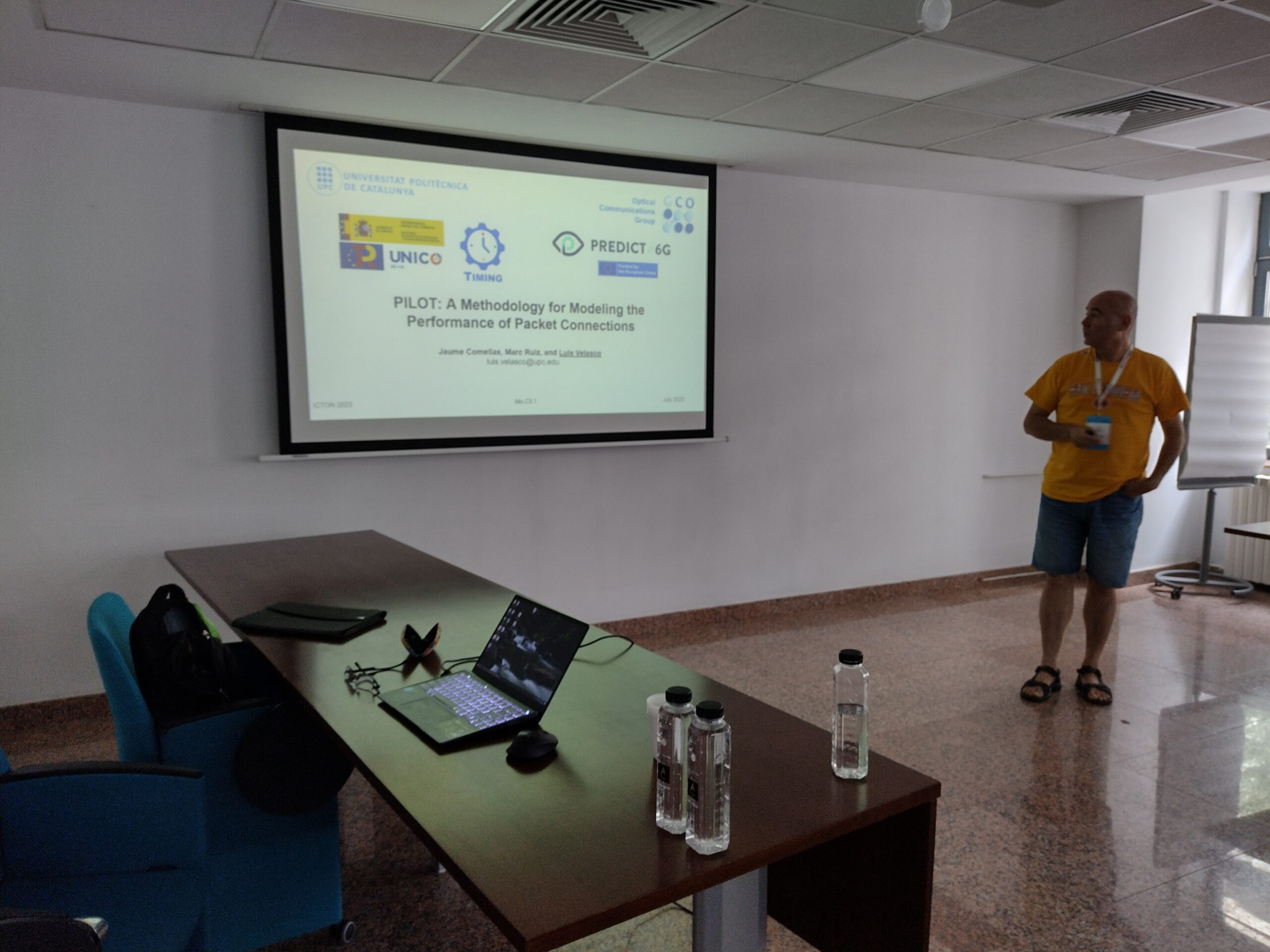
Jaume Comellas presented the paper “PILOT: A methodology for modeling the performance of packet connections”. This paper presents the PILOT methodology for modeling the performance of packet connections during commissioning testing in terms of throughput, delay and jitter. PILOT runs in a sandbox domain and constructs a scenario where an efficient traffic flow simulation environment, based on the CURSA-SQ model, is used to generate large amounts of data for Machine Learning model training and validation. The simulation scenario is tuned using real measurements of the connection obtained from a set of active probes. You can read the full paper here.
Davide Careglio presented the paper “Disaggregated delay modeling in multidomain networks”. In this paper, the team proposes a collaborative environment, where each domain models intra-domain delay components of inter-domain paths and shares those models with a broker system providing the E2E connectivity services. The broker, in turn, models the delay of inter-domain links based on E2E monitoring and the received intra-domain models. You can read the full paper here.
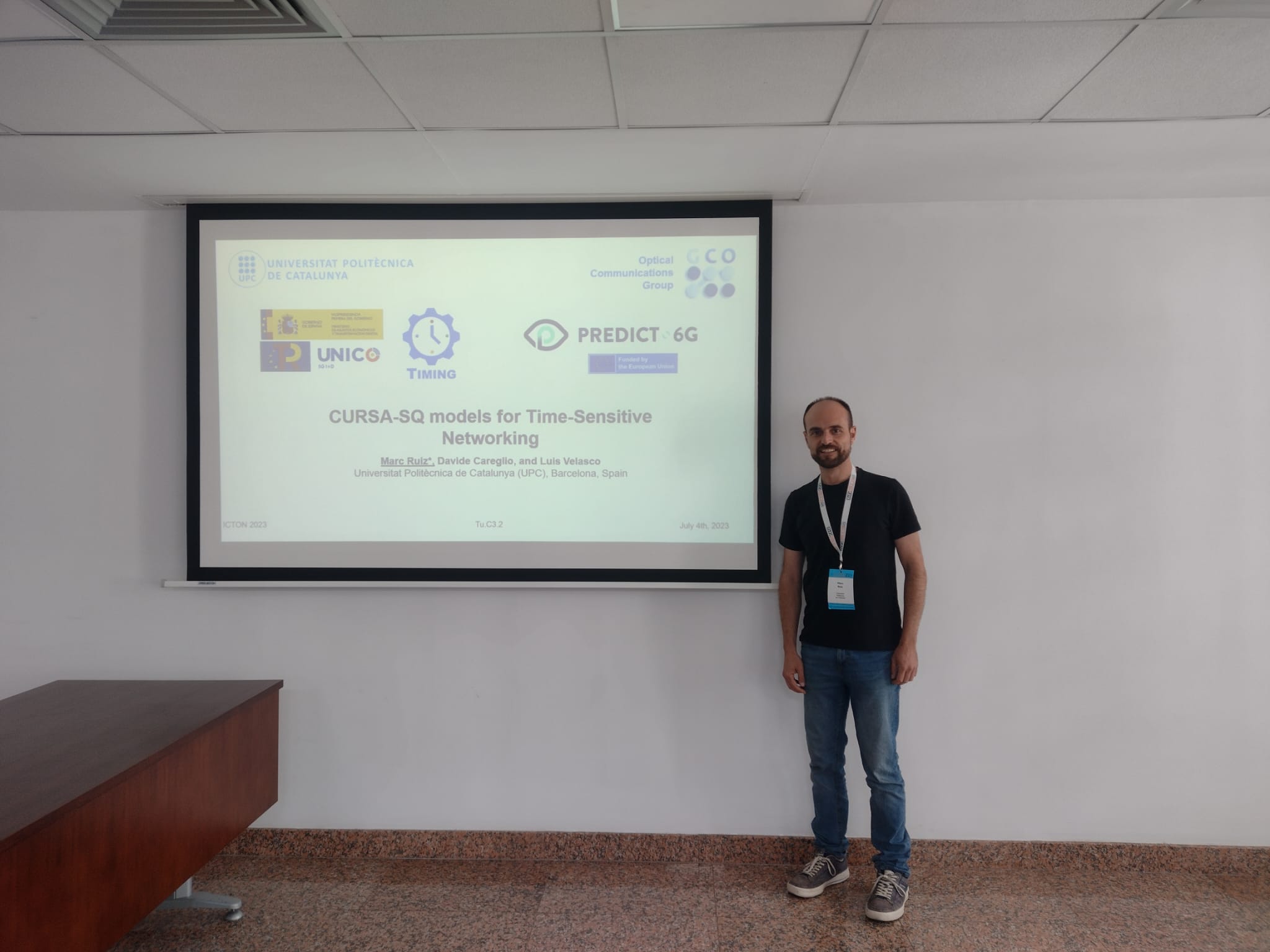
The following day, July 4, also as part of the B5GNeO workshop invited presentations, Marc Ruiz from the UPC presented the paper “CURSA-SQ models for time-sensitive networking”. This paper focuses on analysing the impact of conveying time-sensitive traffic in operators’ networks when such traffic is mixed with best-effort traffic. In particular, extensions to a continuous G/G/1/k queue model are proposed to evaluate two different Ethernet technologies, synchronous and asynchronous, supporting time-sensitive flows in terms of their influence on the performance of best-effort traffic. You can read the full paper here.
If you want to always stay updated about our project, subscribe to our newsletter and follow us on Twitter and LinkedIn!
ICTON is organised by The National Institute of Telecommunications, former Department of Transmission and Optical Technologies in Warsaw, together with the University Politehnica Bucharest and the IEEE Photonics Society Poland Chapter.
PREDICT-6G at the IEEE 802 Plenary Tutorial
On the 10th of July 2023, Carlos J. Bernardos (UC3M) and János Farkas (ERICSSON) will participate in the IEEE 802 Plenary Tutorial in Berlin, Germany, with a session about IETF Reliable Available Wireless (RAW).
The tutorial provides an overview on RAW. It particularly outlines the use cases and technologies considered by RAW and the RAW framework architecture, including Operation, Administration and Management (OAM) mechanisms.
You can follow the event online here.
The work of Carlos J. Bernardos in this tutorial has been partially supported by the Horizon Europe PREDICT-6G (Grant 101095890) project.
We very much welcome your participation!
The IETF Deterministic (DetNet) Working Group aims to standardise technologies to provide deterministic Layer 3 communications for various use cases, including professional audio and video, electrical utilities or wireless, whereas the RAW Working Group was established to extend the DetNet architecture and solutions to wireless networks.
PREDICT-6G at MedComNet 2023
The 21st Mediterranean Communication and Computer Networking Conference took place from the 13-15 of June 2023 in Ponza, Italy. Initiated in 2002, MedComNet is a forum for the presentation of new research results in the broad area of wired and wireless communication and computer networking.
On the 14th of June, PREDICT-6G was represented in the session “Edge, fog and cloud computing”. Professor Carla Fabiana Chiasserini and her colleagues from Politecnico di Torino (POLITO, Italy) presented their paper ¨TCP Connection Management for Stateful Container Migration at the Network Edge”, which addresses service continuity while migrating microservices. You can read the paper here.
Prof. Chiasserini also chaired the special session “Networking for a better Quality of Life”, with several presentations about the utilization of networking to enhance the wellbeing of citizens in terms of safety, privacy and health.
If you want to always stay updated about our project, subscribe to our newsletter and follow us on Twitter and LinkedIn!
MedComNet has obtained the technical co-sponsorship of the IEEE Communications Society (IEEE ComSoc), and accepted papers will be submitted for inclusion into IEEE Xplore.

